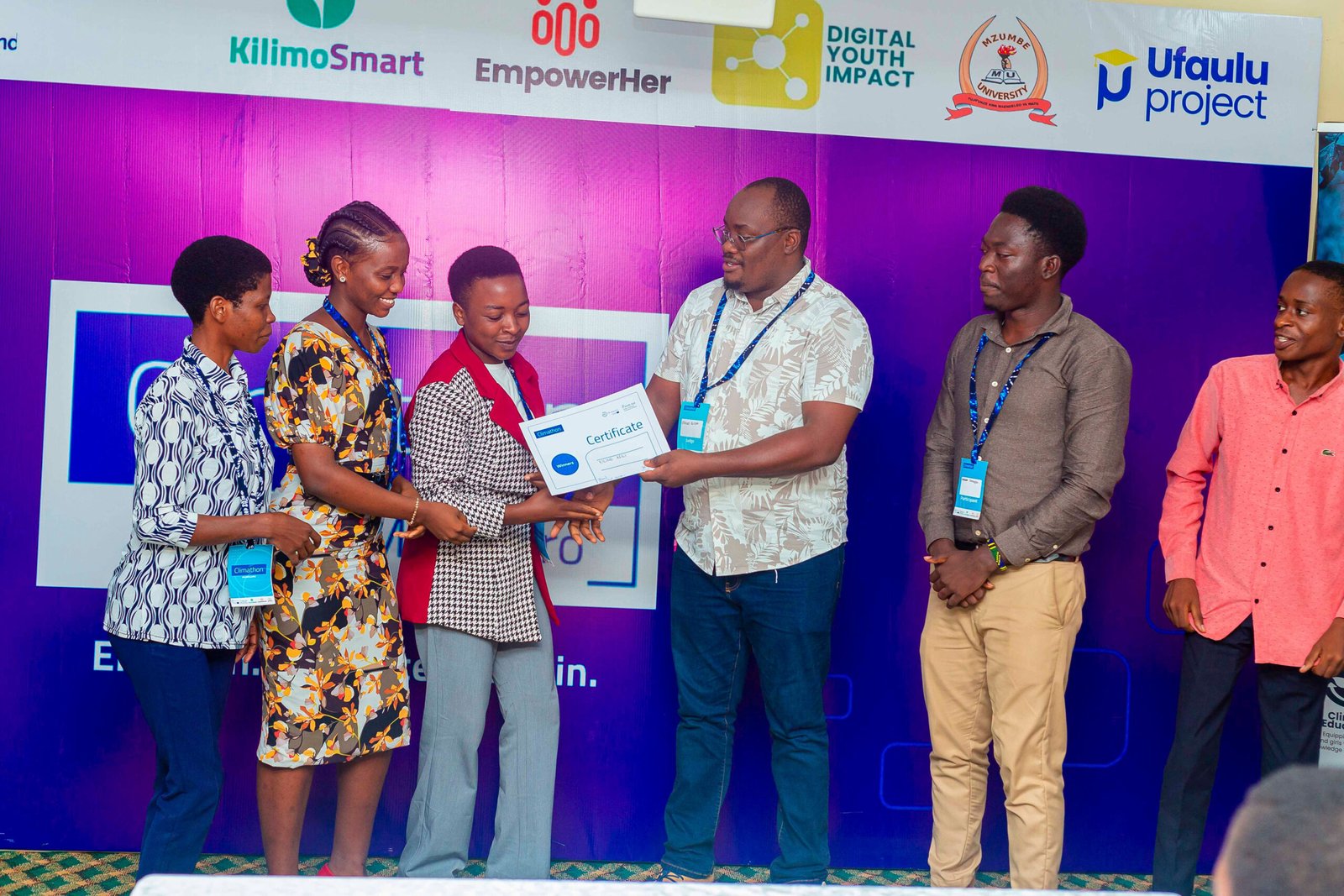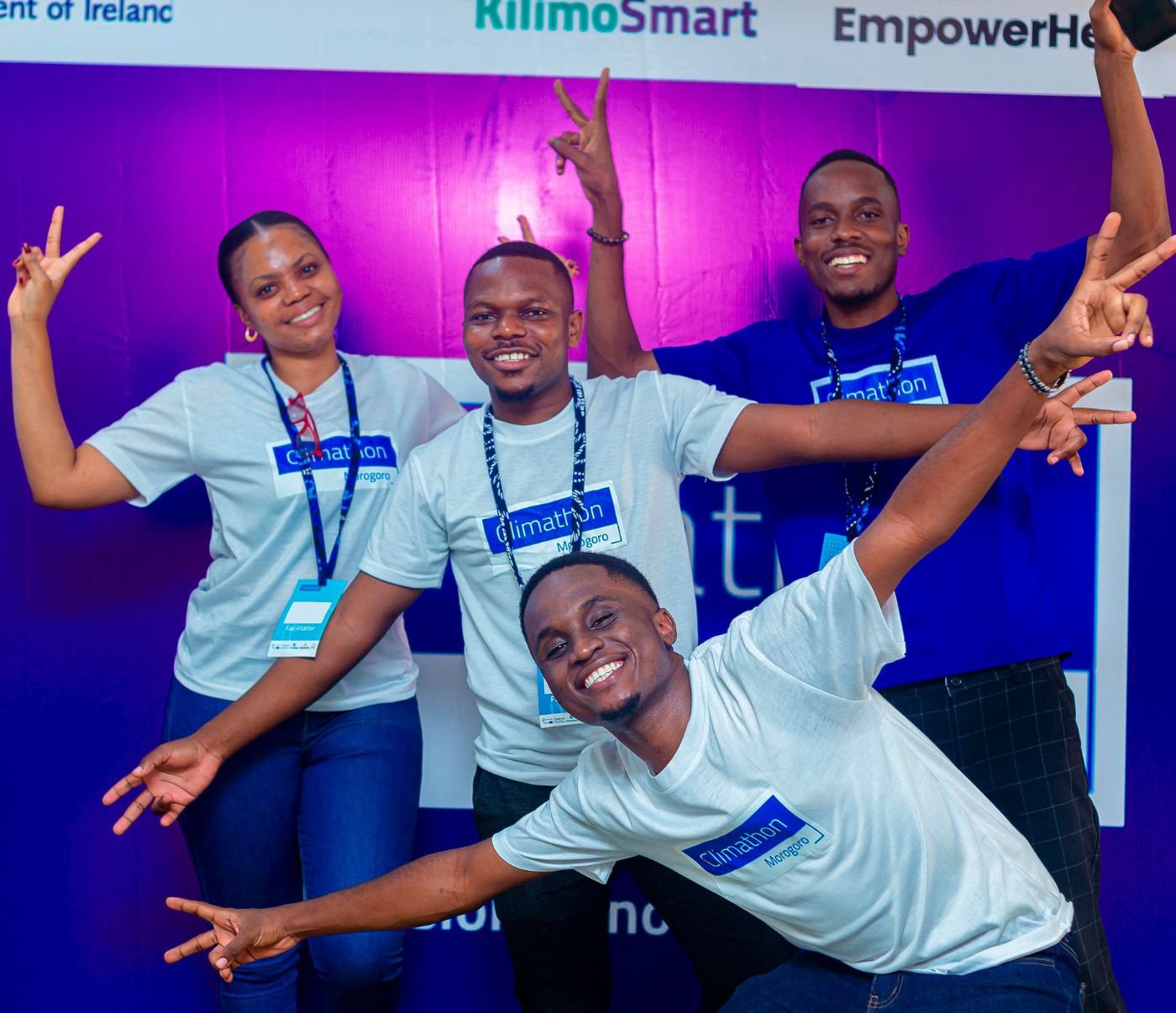Morogoro, Tanzania – The atmosphere at Mzumbe University was charged with innovation and purpose on March 22nd and 23rd, 2025. Forty-five bright students, guided by experienced mentors and climate experts, gathered for Climathon Morogoro 2025, a dynamic 48-hour challenge to co-develop solutions for some of the region’s most pressing environmental concerns: sustainable agriculture and urban waste management.
This impactful event, part of Climate-KIC’s global Climathon initiative, was spearheaded by a collaborative powerhouse: Kilimo Smart Initiative, EmpowerHer Tomorrow, and the Mzumbe University Entrepreneur Incubation Center. Their shared vision was to empower young Tanzanians, leveraging systems thinking, circular economy principles, and technology to build a more resilient and sustainable community.
The Urgency: Morogoro’s Environmental Hurdles
Participants weren’t just tackling abstract problems. Morogoro’s agricultural sector, the lifeblood for approximately 65% of its 120,000 rural households, is under significant pressure. Maize yields have seen an 18% decline over the past five years, largely due to unpredictable rainfall (±30% variability) and deteriorating soil health, with topsoil organic matter dropping from 3.5% to 2.1%.
In the urban center, waste management presents an equally critical challenge. The city generates around 180 tonnes of solid waste daily, but only 52% is formally collected. The remaining 86 tonnes often end up in informal dumps, leading to a 40% rise in such sites since 2020, posing serious pollution and public health risks.
The Spark: From Ideas to Actionable Solutions
Climathon Morogoro was more than just a competition; it was an intensive learning and co-creation experience. Pre-event outreach and capacity-building ensured participants were well-prepared. The event itself kicked off with expert insights into local climate pressures, followed by hands-on workshops focusing on problem framing, developing robust business models using the Business Model Canvas, and honing effective pitching skills.
This structured approach, combined with passionate teamwork, resulted in nine distinct, technology-driven prototypes. “Climathon was intense but incredibly rewarding,” said Paskazia James Masanyiwa, a third-year Public Administration student and member of Team WasteXchange. “The workshops…gave us practical tools to turn our passion for climate action into a potential venture. I feel much more confident now.”

Celebrating Innovation: The Winning Teams
After an exciting pitch session before a panel of five expert judges, three teams were recognized for their outstanding solutions:
- Mzinga Innovation (1st Place): This team impressed with a digital platform connecting beekeepers with real-time climate data to optimize honey production. Their solution cleverly integrates sustainable beekeeping with climate-smart agriculture, enhancing pollination, boosting farm productivity, and offering alternative income for farmers. They also received a $200 cash prize.
- WasteXchange (2nd Place): Addressing the urban waste crisis, WasteXchange proposed an innovative mobile app. It aims to connect households and businesses with recycling companies, incentivizing waste sorting through rewards, thereby promoting a circular economy in Morogoro.
- Kilimo Asili (3rd Place): This team developed a smart agritech solution that uses IoT sensors and AI-driven analytics. Their platform will help farmers optimize irrigation and soil health management, leading to reduced water waste and improved crop yields.
Beyond the Climathon: Nurturing Future Changemakers
The journey for these young innovators is just beginning. All nine participating teams (comprising all 45 students) have been enrolled in the Mzumbe University Incubation Center. This provides them with invaluable access to workspace, ongoing mentorship from the event’s judges, and tailored entrepreneurial coaching to refine and scale their ideas. A total of $500 in seed funding has been allocated through the Incubation Center to assist the top three teams with crucial early-stage costs like business registration and licensing.
“It was inspiring to see the students’ rapid learning curve,” noted Costantine Edward of Kilimo Smart Initiative, an event lead. “Their dedication over the 48 hours was truly commendable.” Dr. Irene Isibika, a judge and coordinator of the Mzumbe Incubation Center, added, “The quality and practicality of the solutions presented were impressive…Ideas like Mzinga Innovation showed a deep understanding of local needs combined with viable business thinking.”
A Collaborative Triumph for Morogoro
Climathon Morogoro 2025 stands as a testament to the power of collaboration. The seamless partnership between local NGOs, Mzumbe University, the Morogoro Municipal Council (which provided crucial data and expertise), and the strategic and financial support from Climate-KIC was fundamental to its success. The event also shone a light on inclusivity, with women making up 56% of participants and 54% of speakers and jury members.
As these nine teams continue to develop their solutions, they carry with them not just innovative ideas, but the support of a community dedicated to fostering positive change. Climathon Morogoro has ignited a spark, empowering youth to take the lead in building a greener, more sustainable future for their region.


No responses yet